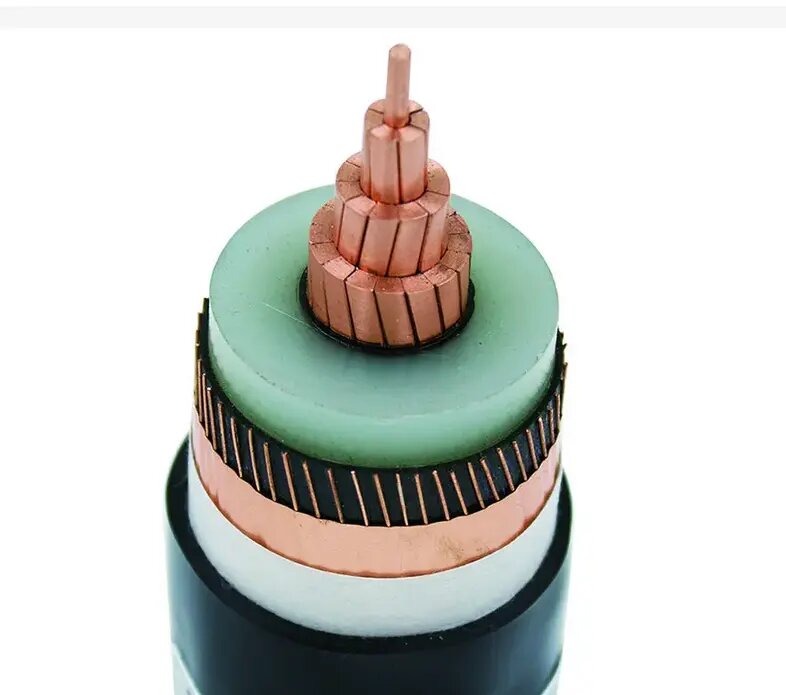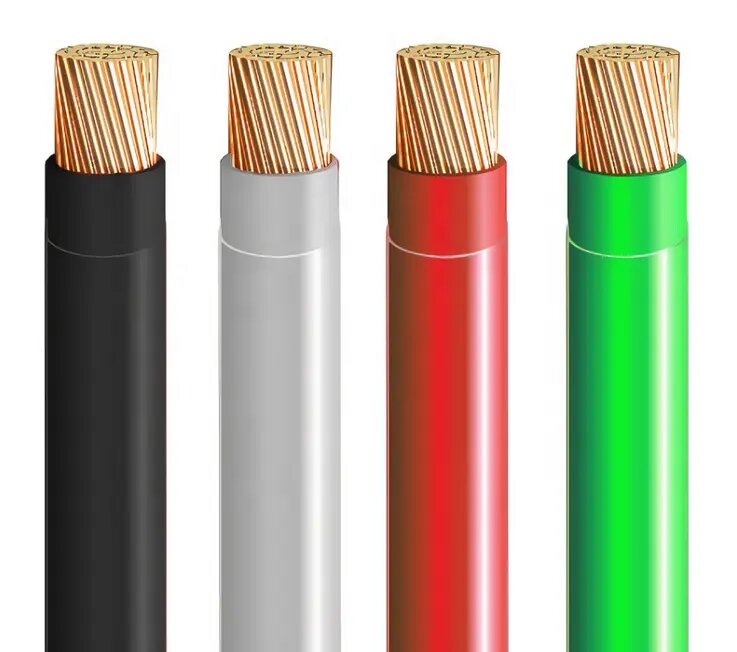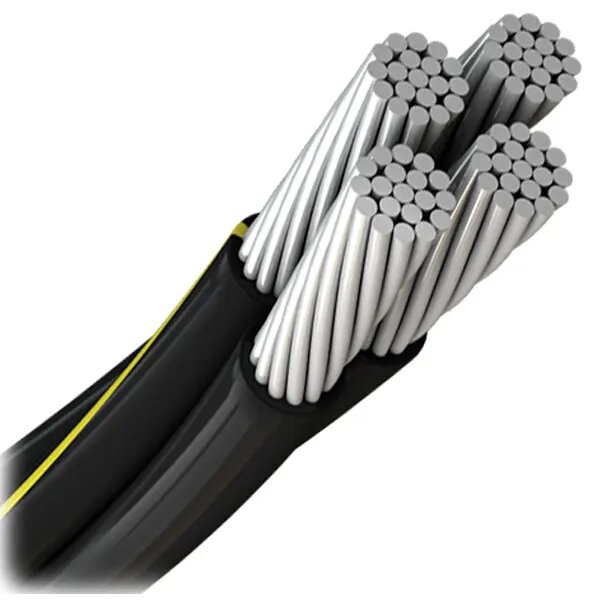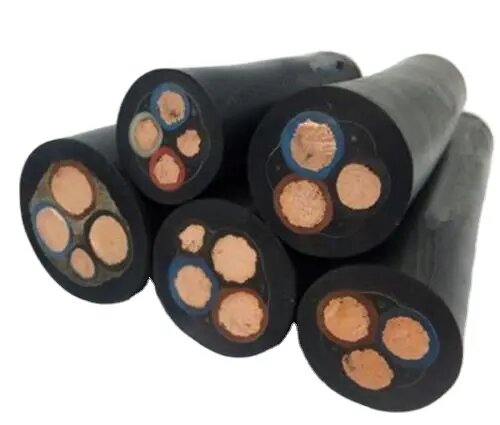Power cables are an essential component of any electrical system. They are responsible for transmitting electrical power from one point to another, making them a crucial part of the infrastructure that powers our world. As such, it is important to know which power cable manufacturers in the USA are the top performers in terms of quality, reliability, and value.
This article will provide a simple guide to the top 10 power cable manufacturers in the USA. It will detail each manufacturer’s strengths, such as the types of power cables they specialize in, the industries they serve, and their manufacturing processes. By the end of this article, readers will have a better understanding of which power cable manufacturers are the best fit for their specific needs.
Whether you are an electrical engineer, a contractor, or a business owner, knowing which power cable manufacturers are at the top of their game can save you time, money, and headaches. From armored cables to fiber optic cables, this guide will cover it all, giving readers a comprehensive overview of the best power cable manufacturers in the USA.
Top 10 Power Cable Manufacturers in the USA
When it comes to power cables, there are many manufacturers in the USA. Here are the top 10 power cable manufacturers that are known for their quality products and services:
1. Thomas & Betts
Thomas & Betts is a leading manufacturer of power cables and wire connectors. They offer a wide range of products, including aluminum and copper connectors, power distribution blocks, and more. Their products are known for their high quality and durability.
2. General Cable
General Cable is a global leader in the development, design, and distribution of aluminum, copper, and fiber optic wire and cable products. They offer a wide range of products for various industries, including energy, construction, and communications.
3. Southwire Company
Southwire Company is a leading manufacturer of wire and cable used in the transmission and distribution of electricity. They offer a wide range of products, including aluminum and copper conductors, overhead conductors, and more.
4. Encore Wire Corporation
Encore Wire Corporation is a leading manufacturer of copper electrical wire and cable products. They offer a wide range of products, including building wire, industrial wire, and more.
5. Coleman Cable, Inc.
Coleman Cable, Inc. is a leading manufacturer of wire and cable products used in the construction, industrial, and consumer markets. They offer a wide range of products, including portable power cords, extension cords, and more.
6. Belden, Inc.
Belden, Inc. is a global leader in the design and manufacture of signal transmission products for data networking and industrial applications. They offer a wide range of products, including copper and fiber optic cables, connectors, and more.
7. Alpha Wire
Alpha Wire is a leading manufacturer of high-performance wire and cable products used in a variety of industries, including automation, industrial, and medical. They offer a wide range of products, including flexible and multi-conductor cables, and more.
8. Paige Electric Co.
Paige Electric Co. is a leading manufacturer of wire, cable, and accessories used in the construction, industrial, and commercial markets. They offer a wide range of products, including armored cable, tray cable, and more.
9. Carol Cable Company
Carol Cable Company is a leading manufacturer of wire and cable products used in the construction, industrial, and commercial markets. They offer a wide range of products, including portable cord, welding cable, and more.
10. Superior Essex Inc.
Superior Essex Inc. is a leading manufacturer of wire and cable products used in the energy, industrial, and communications markets. They offer a wide range of products, including magnet wire, building wire, and more.
These are the top 10 power cable manufacturers in the USA. They offer a wide range of products for various industries, including construction, industrial, and energy. When choosing a power cable manufacturer, it is important to consider factors such as cable material, insulation, conductor size, and industry standards.
Factors to Consider When Choosing Power Cables
When it comes to choosing the right power cable, there are several factors that need to be taken into consideration. Here are some of the most important factors to keep in mind:
1. Conductor Material
The conductor material is one of the most critical factors to consider when choosing a power cable. Copper and aluminum are the two most commonly used materials for conductors. Copper is a better conductor than aluminum, but it is also more expensive. Aluminum is a less expensive option, but it is not as efficient as copper.

2. Insulation Material
The insulation material is another important factor to consider. PVC and rubber are two of the most commonly used insulation materials. PVC is a good option for indoor use, while rubber is better suited for outdoor use. XLPE is another insulation material that is commonly used in industrial applications.
3. Wire Gauge
The wire gauge is an important consideration when choosing a power cable. The American Wire Gauge (AWG) is the standard system used to measure the diameter of wires. The larger the wire gauge number, the smaller the wire diameter. The wire gauge should be chosen based on the current rating and the length of the cable.
4. Stranded Wire vs. Solid Wire
Power cables are available in both stranded wire and solid wire configurations. Stranded wire is more flexible and is better suited for applications where the cable needs to be bent or twisted. Solid wire is less flexible but is better suited for applications where the cable needs to be stationary.
5. Current Rating
The current rating is the maximum amount of current that a cable can carry safely. The current rating of a cable should be chosen based on the amount of current that will be flowing through the cable. Choosing a cable with a current rating that is too low can result in overheating and damage to the cable.
6. Industry Standards
It is important to choose a power cable that meets industry standards. The National Electrical Manufacturers Association (NEMA) and the Underwriters Laboratories (UL) are two organizations that set standards for power cables. Choosing a cable that meets these standards ensures that the cable is safe and reliable.
In conclusion, choosing the right power cable is essential to ensure the safe and efficient operation of electrical equipment. By considering factors such as conductor material, insulation material, wire gauge, stranded wire vs. solid wire, current rating, and industry standards, one can choose a power cable that meets their specific needs.
Types of Power Cables
When it comes to power cables, there are several types available in the market. Each type is designed to meet specific requirements, and the choice of cable will depend on the application and the devices being used. In this section, we will discuss the different types of power cables that are commonly used in the USA.

USB-C Cables
USB-C cables are becoming increasingly popular due to their versatility and ability to handle high data transfer speeds. They are also capable of delivering power, making them ideal for charging devices such as smartphones, laptops, and tablets. USB-C cables have a reversible connector, which means they can be plugged in either way, making them very convenient to use.
Power Delivery Cables

Power Delivery (PD) cables are designed to deliver high levels of power to devices. They are commonly used for charging laptops, tablets, and smartphones. PD cables use a USB-C connector and can deliver up to 100 watts of power, making them ideal for fast charging.
Quick Charge Cables
Quick Charge cables are designed to charge devices quickly. They use a specific technology that allows them to deliver high levels of power to devices, which reduces the time it takes to charge them. Quick Charge cables are commonly used for charging smartphones and tablets.
Charging Cables for Smartphones
Charging cables for smartphones are designed to charge smartphones. They come in different lengths and are available in various materials such as PVC, rubber, and nylon braid. The choice of cable will depend on the device being used and the user’s preferences.
In conclusion, the choice of power cable will depend on the application and the devices being used. When purchasing power cables, it is important to consider factors such as the cable’s current rating, conductor size, insulation material, and industry standards. It is also important to purchase cables from reputable manufacturers such as Thomas, New England Wire Technologies Corp, and other wire and cable manufacturers.
Buying Guide for Power Cables
When purchasing power cables, there are several factors to consider to ensure that the cables meet the required specifications for the intended application. This buying guide provides a brief overview of the key factors to consider when choosing power cables.
Conductor Size and American Wire Gauge
The conductor size is an important consideration when choosing power cables. The American Wire Gauge (AWG) is the standard measurement used to determine the size of the conductor. The AWG number is inversely proportional to the size of the conductor, meaning that a higher AWG number indicates a smaller conductor size.
Insulation Material and XLPE
The insulation material used in power cables is also an important factor to consider. Cross-linked polyethylene (XLPE) is a popular insulation material used in power cables due to its excellent electrical properties and resistance to heat and moisture.
Cores and Nylon Braid
Power cables can have multiple cores, which are individual conductors insulated from each other. The number of cores required depends on the application. Power cables can also have a nylon braid, which provides additional protection against abrasion and mechanical damage.

Industry Standards and Current Rating
When choosing power cables, it is important to ensure that they meet the relevant industry standards and regulations. The current rating of the cables is also an important consideration, as it determines the amount of current that the cables can safely carry.
Plug Adapters and Flexible Cords
Plug adapters and flexible cords are also important considerations when choosing power cables. Plug adapters allow power cables to be used with different types of sockets, while flexible cords provide additional flexibility and ease of use.
Overall, when choosing power cables, it is important to consider factors such as conductor size, insulation material, cores, industry standards, current rating, plug adapters, and flexible cords to ensure that the cables meet the required specifications for the intended application.
